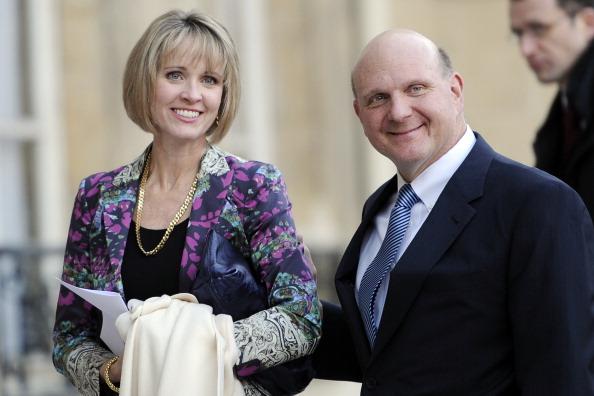NEW YORK—What is a fitting follow-up to Steve Ballmer’s career at Microsoft, where he was one of the tech giant’s first employees and longtime CEO? How about becoming co-owner of basketball’s Los Angeles Clippers franchise with his wife four years ago and also trying to figure out one of the trickiest puzzles in philanthropy.
Steve and Connie Ballmer are attempting to tackle economic mobility, or how to give low-income, disadvantaged kids a legitimate shot at the American Dream.






